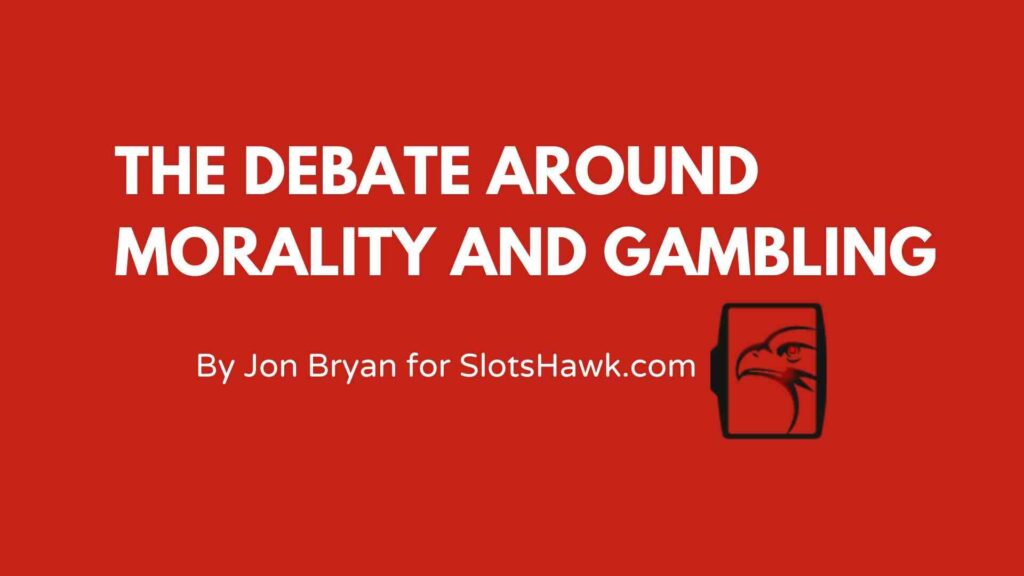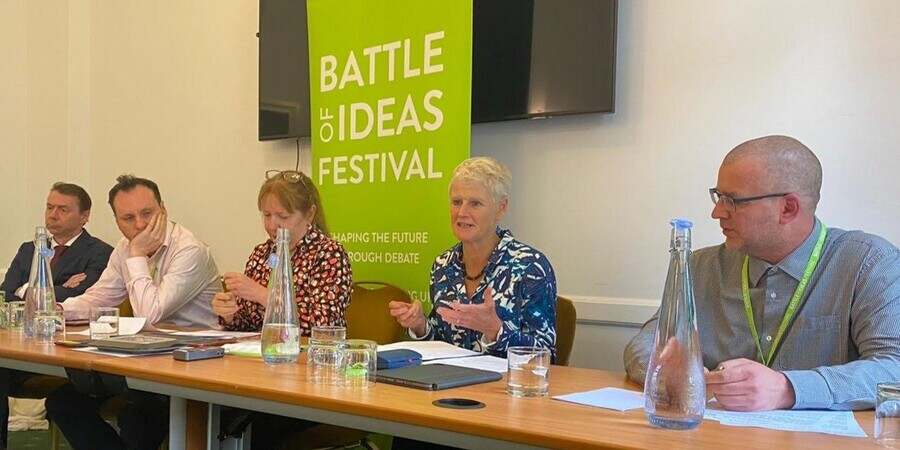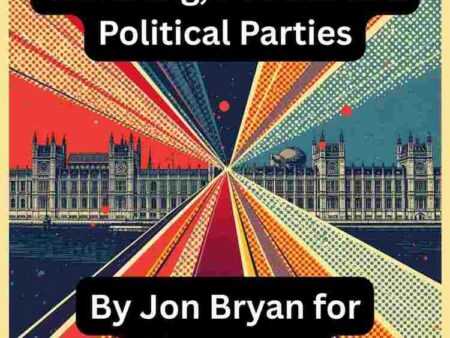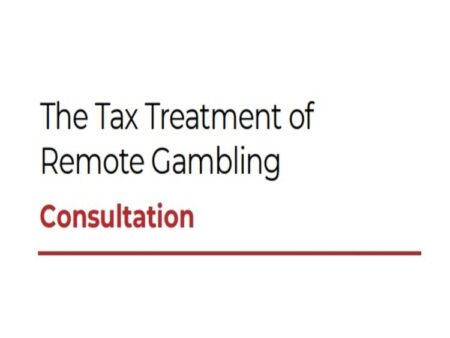Expected reading time 6 mins
Last Updated: September 29, 2025

Written by Jon Bryan
In the lead up to a debate in London at the Battle of Ideas next month, Jon Bryan gives SlotsHawk a sample of his views about gambling and morals.

ENJOYABLE AND NON-HARMFUL
For me, and many people I know, gambling is an enjoyable activity which harms no-one, and which no-one has an issue with. I play poker, have occasional bets on sports and on table games in casinos. One of my favourite places to visit is Las Vegas. I enjoy a day at the races or just watching horse racing on TV. I gamble online, as well as in-person. I’ve met some great people through gambling that I wouldn’t have met in any other way, and I’ve forged friendships with some of those that will last a lifetime.
All the above helps me to frame the way I think about gambling. The enjoyment that it brings and the experiences that I’ve had, all feed into the approach that I take to thinking and writing about gambling.
However, I do understand that mine is not the only story to tell. But it was the dominance of all those other stories about gambling which I got fed up of hearing and reading about, over stories such as my own. It was this that led me to start writing and talking about gambling almost ten years ago. It’s why I try and centre my experience as an ordinary gambler, to offer some balance to the negativity that often surrounds gambling discourse. It’s a balance that really needs addressing.
IS IT IMMORAL TO GAMBLE?
For several religions and belief systems, gambling is seen as immoral. One of my first experiences of a TV debate about gambling was with someone who stated that all gambling should be banned. For anyone interested, you can watch the whole debate on YouTube.
Saying that gambling is immoral is one thing, and discouraging others from engaging in gambling is certainly your prerogative. But if that leads to legislative consequences, that is another issue entirely. When someone’s belief system leads them to argue for a particular set of regulations which restricts the ability of others, that’s when I start to have an issue with those who have a moral objection to gambling. Or, indeed, any objection to gambling.
NOT EVEN A RAFFLE TICKET?
Throughout my life I have known people who wouldn’t take part in a sweepstake at work, play bingo, buy a lottery ticket, or even buy a raffle ticket. Almost all those people have not done so for either religious reasons, or what I might characterise as a belief, a value or a moral that engaging in that activity is not the right thing to do. They have a firmly held belief that the act of gambling compromises them in some way.
I have respect for the decisions of people who choose not to gamble for reasons connected with their beliefs. It is when they seek the practical application of that through the banning (or restricting) of the ability of others to engage in gambling, that’s when I have a clash with them.
There is no compulsion to gamble, or to share the belief that it is an enjoyable activity. But gambling should not be illegal, and it should not be in a situation where the ability to gamble is continually being challenged by commentators, campaigners, policymakers, and the legislative side of the state.
A society is both more liberal and tolerant (and better!) when the disapproval by some of a particular activity doesn’t automatically lead to significant restrictions, or an outright ban on that activity.
NO SURPRISE
It was therefore no surprise to me that a survey conducted by the Gambling Commission three years ago found data which perhaps seem to be contradictory in nature, but which also confirmed some of my suspicions. They found:
- 79% thought there were too many opportunities for gambling.
- 71% agreed that gambling is dangerous.
- 62% thought gambling should be discouraged.
Yet…
- 63% believed that people should have the right to gamble whenever they want.
There are various ways of interpreting this data, and no doubt different bits of these answers could be used to justify a particular approach. I think it is reasonable to assume that although there is some opposition to gambling, and things that might encourage it, there is still an underlying liberal approach to gambling amongst a significant proportion of people. To my mind, that is a good thing.
AN IMMORAL ACTIVITY?

For me, gambling is nothing to do with morals, but is everything to do with enjoyment, socialising, and (at times) camaraderie. I don’t think that there is a huge push from people in the UK to argue that gambling is immoral. At least, not one with big numbers behind it. But I do think that there are a significant group of people who don’t understand both gambling and gamblers, and don’t see gambling as a particularly good activity to be engaged in. The political class is sadly dominated by individuals like this.
That lack of understanding and appreciation of gambling is a problem. It can lead to legislation where the continual search for restrictions takes on a life of its own. Tackling gambling harms and reducing them is one thing that pretty much everyone can get behind. My issue is that this often translates into reducing the level of gambling per se.
An approach to gambling which sees it as a bad thing, in and of itself, is something that I would always argue against, but especially when it morphs into campaigns which seek to restrict both gambling and gamblers.
Some might see it as immoral to gamble. I think immorality only comes into it when we allow the state to restrict us and overregulate. We have seen too much of that over the last few years, and I will continue to argue against that. Gambling is a normal activity that has been around for a long time and will continue to be around for a lot longer. You can believe that it is immoral to gamble, and that’s fine. But the idea that gambling is immoral should have no place in UK legislation, and nor should anti-gambling activists.
There are elements of gambling regulations and the surrounding discourse appear to have a puritanical streak to them. That makes it more important to stand up for gambling and gamblers and challenge how they are often portrayed. I’m looking forward to doing that at The Battle of Ideas.
Jon Bryan is a Gambling Writer and Poker Player. He is speaking about gambling in London at the Battle of Ideas this October: Is Gambling Immoral?







